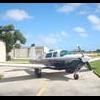Forrest Gump had it right
-
Members Online
- Fly Boomer
- toto
- Brandon t
- Scott Ashton
- Red Leader
- Schllc
- BrettD
- Flyler
- sdmideas
- Lax291
- Rmfriday
- aramkis
- N305EP
- dwanzor
- MDMooney
- AviH
- Cleared to land
- takair
- Bolter
- navysix
- Smiles201
- 00-Negative
- TCC
- PT20J
- Ragsf15e
- Medicpilot
- IvanP
- cbarry
- GIIIPilot
- Blaze
- MikeOH
- Max Clark
- 1980Mooney
- Jerry Brown
- Sabremech
- jkarch
- hammdo
- chrisburdzy98
- philiplane
- Marc_B
- dzeleski
- ElkoRandy20J
- Samir13k
- Brandt
- AlexC1201


Recommended Posts
Join the conversation
You can post now and register later. If you have an account, sign in now to post with your account.